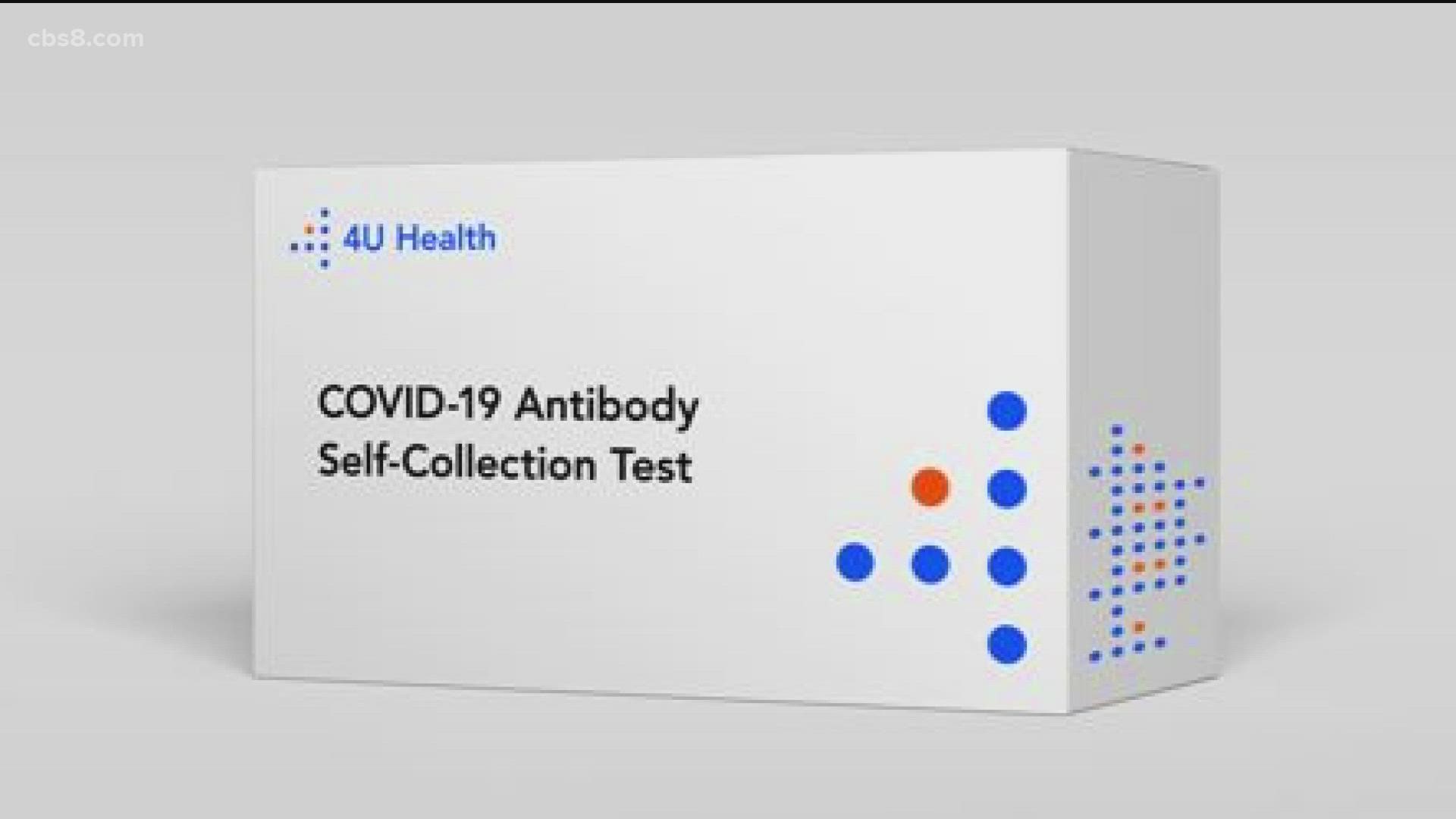SAN DIEGO COUNTY, Calif. — There are at-home self tests to determine if you have COVID but what about antibody tests that show if your immune system can fight the virus?
Doctors warn against using a COVID antibody test for personal knowledge.
“Making individual decisions on behavior or when to wear a mask or even another vaccine based on the current antibody tests we have, I think it's just not wise,” said Dr. Davey Smith, UCSD Chief of Infectious Diseases and Global Health.
You can find a pack of 20 antibody tests online for $276, schedule an antibody test at CVS for $69 but you need to fill out a questionnaire. Or you can speak with your doctor to schedule a test.
This week, San Diego County Board Supervisor Jim Desmond asked the County Health and Human Services agency again about offering antibody testing.
“I think there's a lot of people out there who would like to know if they have antibodies and if we can provide that test,” said Desmond.
A County spokesperson says at this time they don't plan to offer antibody testing to the public.
Not to be confused with antigen testing, like the self-kits that determine active infection, antibody testing measures if your body has any immunity against COVID through a blood test or saliva.
“What that looks for is whether or not there's an immune response that has occurred in that person after they've got infected, or after they've gotten a vaccine,” said Smith.
Doctors use antibody testing to measure spread in a community, also if immunosuppressed patients need another shot, and to determine treatment for a COVID patient.
“If they have antibodies already, then we don't want to give them a monoclonal antibody," said Smith. "But if they don't, perhaps that might be a time when they would go and get that wonderful antibody therapy,”
For people who show they don't have antibodies but say they received the Johnson and Johnson vaccine, Dr. Smith says your T-cells, which is another part of the immune system, could have kicked in to kill the virus but there isn't a great T-cell test.
Dr. Smith says what's important is that even if you show you have antibodies it doesn't prove that you are immune from COVID.
“You don't know how well your immune system is going to react to the next time that it sees the virus next time that it encounters it. We see many people who get the virus more than once," said Smith. "And they had antibodies detectable at the time that they got the virus the second time.”
In May 2021, the FDA recommend that you don't use an antibody test to assess immunity after a COVID-19 vaccination.
Dr. Smith says personally knowing whether you do or don’t have antibodies shouldn’t determine daily activities.
“It doesn't change anything for me, it means that I probably could still get infected with omicron. If I became exposed to it, it means that I still need to follow my booster guidance when it's needed," said Smith. "And still means that I need to take precautions like everybody else in every other situation. So, what did that test really tell me? Not that much,”
During the height of the pandemic, you could donate blood and find out if you had COVD antibodies.
The American Red Cross and the San Diego Blood Bank have stopped collecting COVID convalescent plasma since many local hospitals are no longer needing it to treat patients.
This week the FDA issued a warning against using the LuSys Laboratories COVID-19 Antigen Test (Nasal/Saliva) and the LuSys Laboratories COVID-19 IgG/IgM Antibody Test because there is a high risk of false results.
WATCH RELATED: DA's office warns against buying unapproved COVID-19 at home tests (January 2022)

